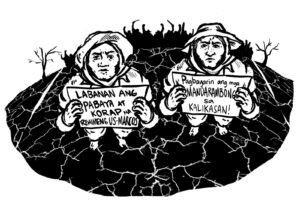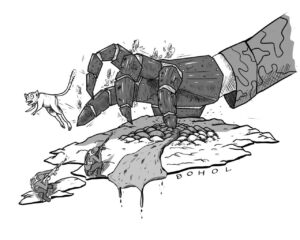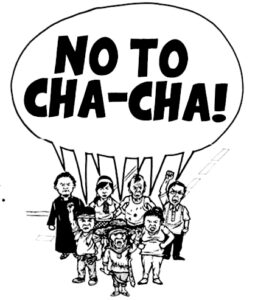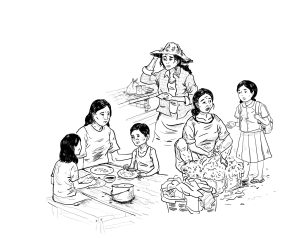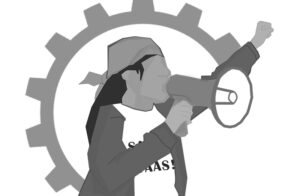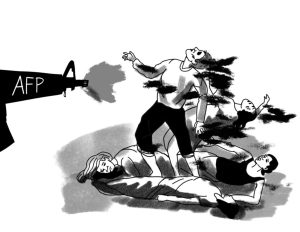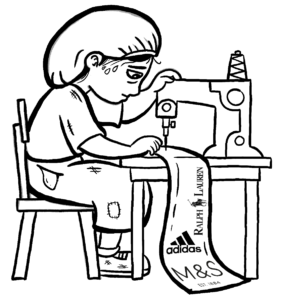Perseverance amid suppression of the right to unionize in Cebu

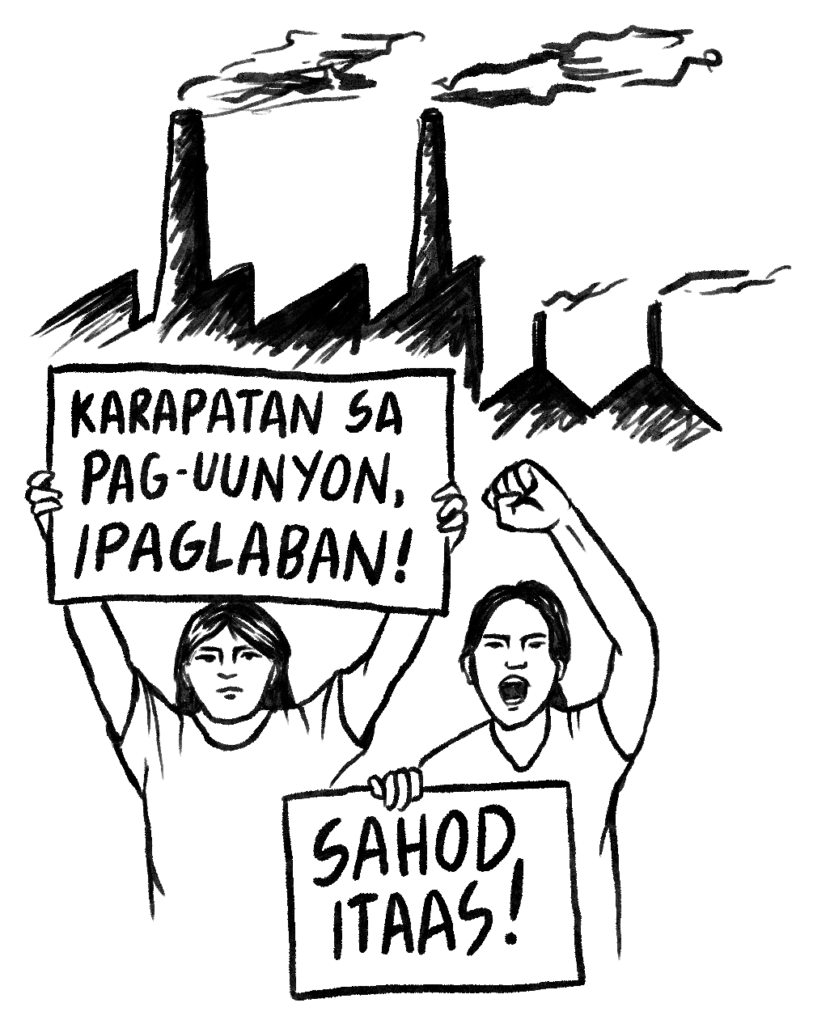
Big and foreign capitalists deliberately attack workers’ rights to unionize and bargain in order to keep Filipino labor cheap and docile. This goes against what reactionary state officials keep parroting, what their own law say, and the international agreements which they have hypocritically signed. Forming a union and demanding that it be recognized as exclusive bargaining representative of workers is already very difficult.
This is the experience of Bokya and Bayong, both 39 year-old workers in a factory in Cebu, who are still contractual workers even after 13-14 years.
Urgent reasons convinced them to join the union. “I was told a union was being formed for job security, to protect us from arbitrary layoffs,” said Bokya. “During that time, there was a lot of talk until that year, when our (labor) agency was the only one left. This is the issue that united us,” said Bayong.
They started building the factory union back in 2018, but until now the capitalist refuses to recognize it as a Sole and Exclusive Bargaining Agent (SEBA). To prevent the union’s formation, management sanctioned members by placing them on “floating status” or removing them from regular job rotation. The capitalist fired workers four times to kick the ones already organized.
Workers fought back. They launched collective actions and demanded the factory be inspected by the Department of Labor and Employment to expose how workers are subjected to labor-only contracting (LOC) scheme. They also demanded that workers placed on floating status be returned to regular rotation.
“We conducted an armband protest, sent a letter asking for a dialogue but there was no response,” Bokya said.
Instead, the capitalist, with the complicitity of the state, increased pressure on workers. It invited the NTF-Elcac to the factory to hold a forum in which the union was brazenly Red-tagged. Union leaders and their families were subjected to threats. Fascist agents even attended management meetings.
The presence of the NTF-Elcac in the factory caused unrest among workers. “To overcome this challenge, we who were active in the union visited workers’ homes, gathered them and worked to restore the vitality of our (meetings) and study.”
They continued the fight for the union’s SEBA status and raised urgent workers’ demands such as higher wages. They filed petitions with the labor agency to regularize contractual workers. Outside the factory, they supported other workers who lost their jobs amid times of emergency.
“We helped each other when the practice of putting workers in “floating status” became rampant and during typhoon Odette’s devastation,” Bokya said.
“During the pandemic, we helped one another in demanding aid from government agencies,” said Bayong.
The experience of building the union raised Bokya and Bayong’s awareness of broader social issues, particularly the state’s widespread human rights abuses. “We joined protests against government killings and harassment, and rallies against violations of our rights,” said Bokya. They also participated in relief drives for victims of disasters or fires in workers’ communities.
In their personal lives, they learned discipline, courage and militance. “My life changed because I learned a lot about what a genuine union really is, how to really fight and not be subservient to the capitalist,” said Bokya. “I learned more about principles, and I am no longer in fear of management,” said Bayong.
“I moderated my drinking,” Bokya added. “We are no longer afraid of speaking our minds and explaining our rights to others.”

